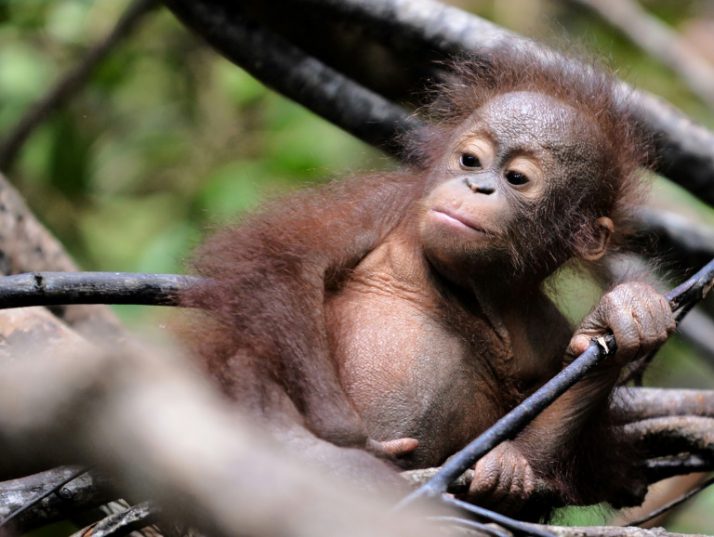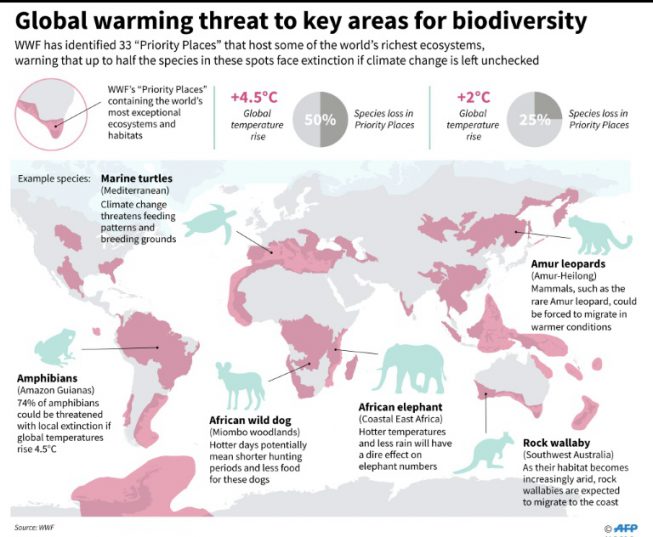Reeza slams Proteas to T20I series win over Pakistan
President Juan Manuel Santos opened the Intergovernmental Science-Policy Platform on Biodiversity and Ecosystem Services (IPBES) meeting in Medellin by stating that protecting biodiversity is “as important as fighting climate change.”
Hundreds of scientists and government envoys are gathering at the event, which runs through March 26, to finalize details on five monumental reports designed to inform global policymaking into the future.
“Today the world is at a crossroads,” added IPBES president Sir Robert Watson.
“The historic and current degradation and destruction of nature undermine human well being for current and countless future generations.”
Compiled over the last three years, the reports will provide the most up-to-date picture of the health of the world’s plants, animals and soil.
– ‘Immensely ambitious’ –
The diagnosis will be unveiled in two parts.
First, on March 23, the IPBES will release separate assessments for the four regions into which it has divided the world — the Americas, Africa, Asia-Pacific, and Europe and Central Asia.
Then on March 26 a report will be released focusing on the global condition of soil, which is fast being degraded through pollution, forest-destruction, mining, and unsustainable farming methods that deplete its nutrients.
The evaluations took 600 volunteer scientists three years to complete, and includes summaries of data taken from about 10,000 scientific publications.
The end product covers the entire Earth apart from Antarctica and the open oceans — those waters beyond national jurisdiction.
Host Colombia claims it has the world’s largest variety of birds and orchids, and is second only to Brazil in terms of overall species diversity.
Paradoxically, decades of Colombia’s internal conflict have preserved fragile habitats in no-go zones of the country, whose mountainous topography supports 311 different ecosystems.
But 1,200 Colombian species are listed as threatened, due partly to pollution and forest-destruction caused by illicit drug production.
More than just a portrayal of doom and gloom, the latest assessments will include projections for future recovery or decline, and “suggestions for action,” IPBES executive secretary Anne Larigauderie told AFP.
“An immensely ambitious challenge lies ahead of us this week,” she said Saturday.

Orangutans in Borneo are just one of the world’s many threatened species as Earth faces a biodiversity crisis
The expert panel, she said, had compiled five assessment reports, each about 600-900 pages long and condensed into a 20-30 page “summary for policymakers.”
These summaries must be officially adopted in Medellin before being sent to IPBES member states to guide policymaking in areas that affect biodiversity — everything from transport and infrastructure to farming, water management and education.
The reports however are not prescriptive. “We hope that this will help inform policy decisions to stem the loss of biodiversity and the fundamental services it provides us with,” chief scientist Tom Brooks of the International Union for the Conservation of Nature told AFP.
Following the opening formalities late Saturday, delegates will hunker down for days of intense, “word-by-word” negotiations on the five summary documents.

Hotspots where climate change puts species in some of the world’s richest ecosystems at the greatest risk
The drafts in their current form will be presented to a joint IPBES meeting on Sunday, after which delegates will meet in five groups — one for each report.
Governments will have a final chance to request changes to the wording of the summaries. If the scientific authors disagree, a compromise must be found through negotiation.
The whole process has cost about $5 million (four million euros).
This complex drafting process, Larigauderie said, is crucial to get as many governments as possible on board, for a better chance of them adopting biodiversity-friendly policies as a result.
Download our app and read this and other great stories on the move. Available for Android and iOS.